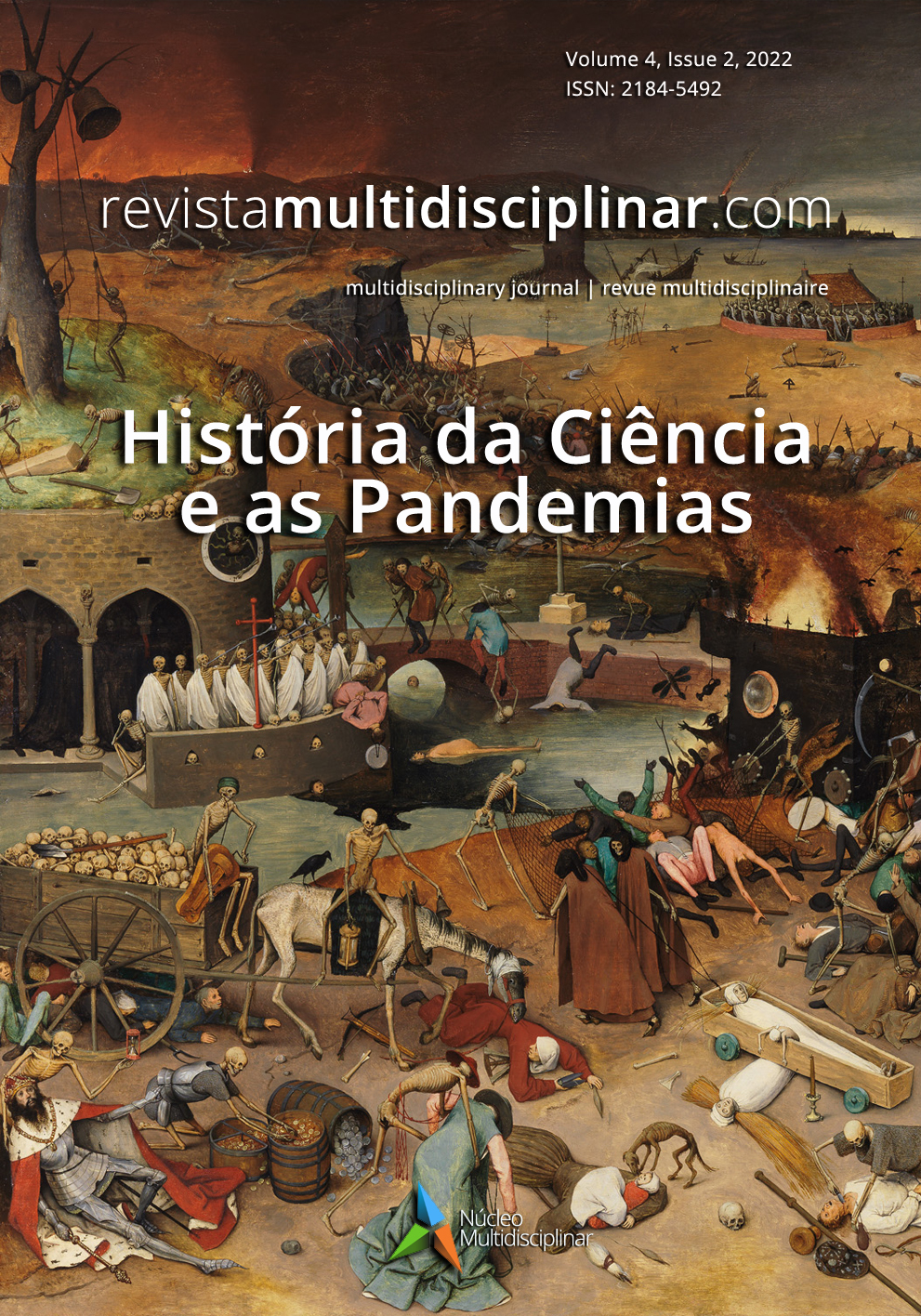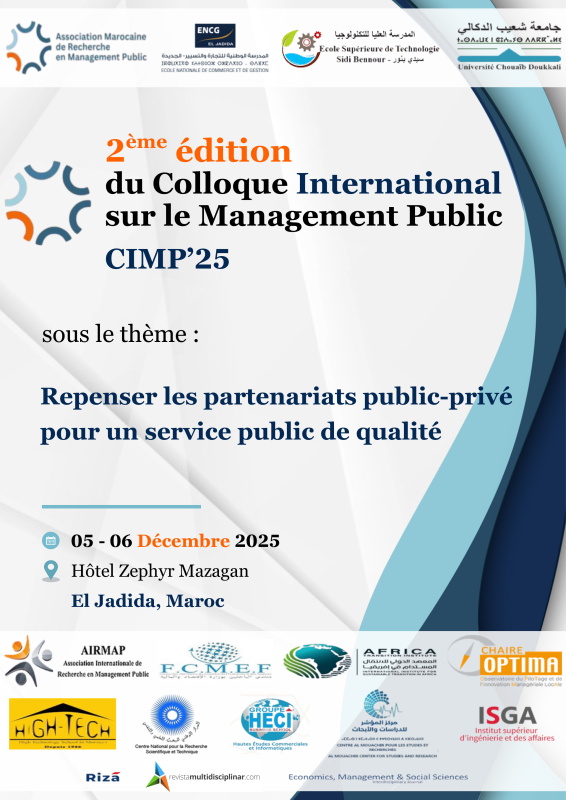History of Science & COVID-19
Teaching opportunities and constraints in Portugal
DOI:
https://doi.org/10.23882/rmd.22097Keywords:
Learning, COVID-19, History of Science Teaching, History of Science, PandemicsAbstract
The current pandemic that we all face, caused by the spread of the SARS-CoV-2 coronavirus, has an unquestionable impact on our routines and way of thinking, also affecting the course of school activities. Science becomes even more noticeable in our society, as it became crucial to understand the virus, the disease, and its implications in our daily life. When it comes to science teaching, the pandemic highlighted for the need of our students to understand how science develops (nature of science) and to develop competences that allow them to overcome a diversity of challenges and to take informed and conscious decisions. In this way, resorting to the current pandemic context, as well as to the historical pandemic contexts may enhance students’ learning of all educational levels.
Therefore, it was constructed and validated a questionnaire to understand how history of science, namely the history of pandemics, as well as the current pandemic context were focused on classes in Portugal. Questionnaires were sent by email, asking teachers from basic to secondary school to anonymously complete them online. This study involved 58 teachers of different subjects from the North of Portugal.
We verified that a substantial number of teachers referred to have resorted more to the history of pandemics, taking into account the current context, indicating that students revealed motivated. Despite the challenges presented by COVID-19, we consider that Science Education came out of this pandemic with a revamped relevance, being teachers training and the development of materials/didactical resources fundamental for a different approach on pandemic history and the current pandemic situation, in order to better be aligned with Science Education research.
References
Abd-El-Khalick, F. (2006). Over and over again: College students’ views of nature of science. In L. B. Flick & N. G. Lederman (Eds.), Scientific Inquiry and Nature of Science (pp. 389-425). Springer: Dordrecht, The Netherlands.
Acevedo-Díaz, J.A., & García-Carmona, A. (2016). “Algo antiguo, algo nuevo, algo prestado”. Tendencias sobre la naturaleza de la ciencia en la educación científica. Revista Eureka sobre Enseñanza y Divulgación de las Ciencias, 13(1), 3–19. http://hdl.handle.net/10498/18010
Bichara, D. B., Dagher, Z. R., & Fang, H. (2021). What do COVID‑19 Tweets Reveal about Public Engagement with Nature of Science? Science & Education. https://doi.org/10.1007/s11191-021-00233-y
Brody, H., Rip, M. R., Vinten-Johansen, P., Paneth, N., & Rachman, S. (2000). Map-making and myth-making in Broad Street: the London cholera epidemic, 1854. The Lancet, 356, 64-68. https://doi.org/10.1016/S0140-6736(00)02442-9
Callegari, M. E., Callegari, G. E., & Cattani, A. E. (2020). La peste negra del siglo XIV en el cine. Journal of Medicine and Movies, 16, 351-361.
Chau, S. W. H., Wong, O. W. H., Ramakrishnan, R., Chan, S. S. M., Wong, E. K. Y., Li, P. Y. T., Raymont, V., Elliot, K., Rathod, S., Delanerolle, G., & and Phiri, P. (2021). History for some or lesson for all? A systematic review and meta-analysis on the immediate and long-term mental health impact of the 2002–2003 Severe Acute Respiratory Syndrome (SARS) outbreak. BMC Public Heath, 21, 1-23. https://doi.org/10.1186/s12889-021-10701-3
Cheung, K. K. C. (2020). Exploring the Inclusion of Nature of Science in Biology Curriculum and High-Stakes Assessments in Hong Kong. Science & Education, 29, 491–512. https://doi.org/10.1007/s11191-020-00113-x
Cook, N. (2020). Learning Lessons from history. The RoSPA OS&H Journal, 20-25.
Dobson, C. & Dobson, M. (2017). Plagues and History: From the Black Death to Alzheimer’s Disease. In J. L. Heeney & S. Friedemann (Eds.), Plagues (pp. 32-65). Cambridge University Press. https://doi.org/10.1017/9781108147910
Ebrahim, S. H., Maher, A. D., Kanagasabai, U., Alfaraj, S. H., Alzahrani, N. A., Alqahtani, S. A., Assiri, A. M. & Memish, Z. A. (2021). MERS-CoV Confirmation among 6,873 suspected persons and relevant Epidemiologic and Clinical Features, Saudi Arabia — 2014 to 2019. EClinicalMedicine, 41, 1-13. https://doi.org/10.1016/j.eclinm.2021.101191
El-Dine, L. R. Z., & Mello, V. P. S. (2021). “A gripe espanhola como lição”: a pandemia de 1918-1919 nos jornais “O Globo” e “Folha de S. Paulo” (1941-2020). Revista NUPEM, 13(29), 13-35. https://doi.org/10.33871/nupem.2021.13.29.13-35
Fernandes, M. A. F., Machado, E. A., Alves, M. P., & Aguiar Vieira, D. (2021). Ensinar em tempos de COVID-19: um estudo com professores dos ensinos básico e secundário em Portugal. Revista Portuguesa De Educação, 34(1), 5-27. https://doi.org/10.21814/rpe.21108
Harangi-Rákos, M., Ștefănescu, D., Zsidó, K.-E., & Fenyves, V. (2022). Thrown into Deep Water: Feedback on Student Satisfaction - A Case Study in Hungarian and Romanian Universities. Education Sciences, 12(1), 36. https://doi.org/10.3390/educsci12010036
Honigsbaum, M. (2020). The Pandemic century – A history of global contagion from the Spanish Flu to Covid-19. Random House.
Kampourakis, K. (2016). The “general aspects” conceptualization as a pragmatic and effective means to introducing students to nature of science. Journal of Research in Science Teaching, 53, 667–682. https://doi.org/10.1002/tea.21305
Khalid, I., Imran, M., Imran, M., Ali Akhtar, M., Khan, S., Amanullah, K., & Khalid, T. J. (2021). From Epidemic to Pandemic: Comparing Hospital Staff Emotional Experience Between MERS and COVID-19. Clinical Medicine & Research, 19(4), 169-178. https://doi.org/10.3121/cmr.2021.1657
Lederman, N.G., Abd-El-Khalick, F., Bell, R.L., & Schwartz, R.S. (2002). Views of Nature of Science Questionnaire: Toward valid and meaningful assessment of learners’ conceptions of Nature of Science. Journal of Research in Science Teaching, 39, 497–521. https://doi.org/10.1002/tea.10034
Lederman, N.G., Antink, A., & Bartos, S. (2014). Nature of Science, Scientific Inquiry, and Socio-Scientific Issues Arising from Genetics: A Pathway to Developing a Scientifically Literate Citizenry. Science & Education, 23, 285-302. https://doi.org/10.1007/s11191-012-9503-3
Moura, C. B., Nascimento, M. M., & Lima, N. W. (2021). Epistemic and Political Confrontations Around the Public Policies to Fight COVID-19 Pandemic: What can Science Education learn from this episode? Science & Education, 30, 501-525. https://doi.org/10.1007/s11191-021-00193-3
OECD (2020). The impact of COVID-19 on student equity and inclusion: supporting vulnerable students during school closures and school re-openings. Retrieved January 3, 2022, from https://bit.ly/3rfYe1q
Parihar, S., Kaur, R. J., & Singh, S. (2021). Flashback and lessons learnt from history of pandemics before COVID-19. Journal of Family Medicine and Primary Care, 10(7), 2441-2449.
Raoult, D., Dutour, O., Houhamdi, L., Jankauskas, R., Fournier, P., Ardagna, Y. Drancourt, M., Signoli, M., Dang La, V., Macia, Y. Aboudharam, G. (2006). Evidence for Louse-Transmitted Diseases in Soldiers of Napoleon’s Grand Army in Vilnius. The Journal of Infectious Diseases, 193, 112–120.
Reiss, M. J. (2020). Science Education in the Light of COVID-19. Science & Education, 29, 1079–1092. https://doi.org/10.1007/s11191-020-00143-5
Revel Chion, A., & Adúriz-Bravo, A. (2021). In Sickness and in Health. Science & Education. https://doi.org/10.1007/s11191-021-00258-3
Roos, J. (2020). How plagues change the world. The New Statesman, 149(5520), 24-28.
Smith, K. A. (2011). Edward Jenner and the small pox vaccine. Frontiers in Immunology, 2(21), 1-6. https://doi.org/10.3389/fimmu.2011.00021
Toapanta, H. G. G. (2021). Pandemias en la historia: La peste negra y la gripe española, covid-19 y crisis capitalista. Revista de Ciencias Sociales y Humanidades, 14, 130-145.
Tognotti, E. (2013). Lessons from the History of Quarantine, from Plague to Influenza A. Emerging Infectious Diseases, 19(2), 254-259. https://doi.org/10.3201/eid1902.120312
Torres, J. & Vasconcelos, C. (2015). Nature of science and models: Comparing Portuguese prospective teachers’ views. Eurasia Journal of Mathematics, Science & Technology Education, 11(6), 1473-1494. https://doi.org/10.12973/eurasia.2015.1407a
Torres, J. (2021). História das epidemias. In Caderno de Resumos - VIII Jornada de História da Ciência e Ensino e II Congresso Internacional de História da Ciência no Ensino. Revista História da Ciência e Ensino, vol 23 (suplemento), p. 15. 26-29 outubro.
Torres, J., & Vasconcelos, C. (2021). Models and the Nature of Science: What Mediates Their Implementation in Portuguese Biology and Geology Classes? Education Sciences, 11, 688. https://doi.org/10.3390/educsci11110688
Verma, R., Chayal, V., Kumar, R., Bhalla, K., Dhankar, M., Dhaka, R., Agrawal, G. (2018). Community perception about swine flu in an urban slum of Haryana: A cross-sectional study. Journal of Family Medicine and Primary Care, 7(6), 1515-1520. https://doi.org/10.4103/jfmpc.jfmpc_151_18
Villar, A. M. (2020). Remedios curativos y propaganda médica contra la influenza de 1918 en México: ideas y conocimientos. História, Ciências, Saúde – Manguinhos, 27(2), 391-409. https://doi.org/10.1590/S0104-59702020000200005
World Health Organization (WHO). (2020). Coronavirus disease 2019 (COVID-19) Situation Report – 51.
Published
How to Cite
Issue
Section
License
Copyright (c) 2022 Joana Torres, Isilda Rodrigues

This work is licensed under a Creative Commons Attribution-NonCommercial 4.0 International License.









